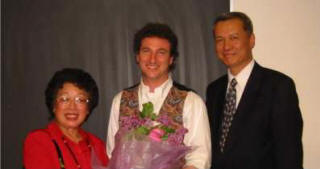New Gods of Chinatown: Faith & Survival in New York’s Immigrant Community
Since the 1980s, as many as 200,000 mostly rural Chinese have migrated, legally and illegally, from the towns and villages outside the city of Fuzhou, on China’s southeastern coast, to New York’s Chinatown, bringing with them their religious beliefs, their religious practices and even their local deities. In recent years these immigrant laborers in Chinatown’s restaurants and garment sweatshops have established numerous specifically Fuzhounese religious communities, ranging from Buddhist, Daoist, Protestant and Catholic Christianity to popular Chinese religion.
This ethnographic study examines the central roles of these religious communities in the immigrant incorporation process in Chinatown’s highly stratified ethnic enclave. It also explores the transnational networks established between religious communities in New York and Fuzhou, including their role in transmitting religious and social constructs from China to the United States and the influence of these new US institutions on religious and social
relations in the religious revival sweeping southeastern China.

